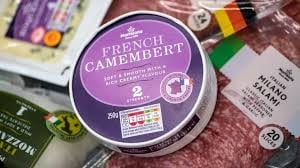New UK Border Controls Strain Food Imports

Recent developments in UK food imports from the European Union are set to present challenges and potential price increases for consumers.
The imposition of new border controls on various fresh produce, including meat, eggs, fish, and dairy products, has escalated red tape for businesses and introduced the requirement for "export health certificates" and additional paperwork.
These measures, estimated to cost British businesses about £330 million annually and increase food inflation by about 0.2 percentage points over three years, heighten concerns about disruptions to vital supplies and economic harm.
Despite the potential impact on inflation, the UK government maintains that the new controls are necessary to prevent the import of diseases and pests while enhancing border security.
However, industry groups caution that price hikes and supply disruptions could result from the additional bureaucracy and physical border checks slated for the end of April.
What Does This Mean for Me?
With the UK relying on imports for a significant portion of its beef, sheep meat, and pork, the changes may exacerbate the nation's cost-of-living crisis, where annual food price inflation recently peaked at 19%, the highest in 45 years.
Trade organizations representing the UK food supply chain have warned that the new border measures could disrupt the flow of critical food ingredients from the EU, jeopardizing food security and product availability.
Considering that Europe serves as the UK's primary foreign food supplier, accounting for over a quarter of the food consumed in Britain by value, these developments show the growing negative impact of Brexit on the country’s economy.
More News
.webp)
Japan’s Rate Shift Is Rippling Through Global Bond Markets
1 week ago

China’s Growth Engine Stalls as Consumers and Investors Pull Back
1 week ago

Egypt’s Recovery Gains Traction as Household Pressure Lingers
2 weeks ago

OECD Warns AI and Tariffs Will Test the Global Economy
3 weeks ago

Zero Tariffs, Higher Drug Bills as US and UK Reset Pharma Trade
3 weeks ago

Catastrophe Bonds Go Global as Climate Risk Meets Yield Hunting
1 month ago
.webp)
Canada Shields Steel and Lumber Industries From Tariffs
1 month ago

Trump Drops Selected Tariffs in Response to Inflation Pressures
1 month ago